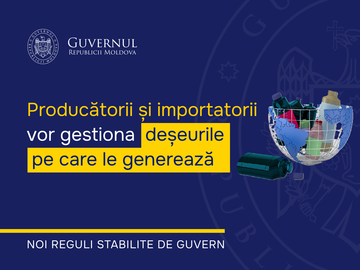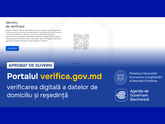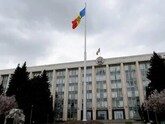
The Moldovan Cabinet of Ministers has updated the regulatory framework in the area of extended producer responsibility and established new rules for producers and importers on waste management
In particular, at a meeting on Wednesday, the government approved amendments to regulations governing extended producer responsibility for product categories subject to extended producer responsibility, such as packaging, electrical and electronic equipment, batteries and accumulators, tires, waste oils, and end-of-life vehicles. The changes provide for the strengthening of the extended producer responsibility (EPR) system, a mechanism whereby producers and importers are required to manage products after they become waste. The document also establishes the responsibilities of all participants—local authorities, sanitation service operators, companies, and consumers—and provides for the transfer of financial and organizational waste management from public authorities to producers. The new provisions aim to strengthen a clear, fair, and predictable waste management system, remove barriers related to registration and reporting for own consumption, and transparently define operating costs for producers and economic operators. In addition, waste reporting and traceability rules are becoming clearer, and investments in collection infrastructure are recognized and monitored, creating a fair competitive environment and stimulating innovation, while complying with the principles of extended producer responsibility. The amendments also support local authorities by strengthening partnerships with collective systems. In this way, city councils and inter-municipal development associations will be able to develop more efficient waste collection services, financed by producers and importers, without burdening local budgets. This will help reduce the amount of waste discarded, increase recycling rates, and improve the quality of life in communities, while providing valuable materials to the recycling industry. The new rules will ensure more efficient and transparent services at no additional cost to households. Access to organized collection points and permanent services will encourage active participation in waste recycling and make public spaces cleaner and more attractive. According to the Ministry of Environment, these measures bring Moldova closer to European standards in this area, providing economic and environmental benefits and directly responding to citizens' expectations. The rules were updated with the support of UNDP to promote effective waste management and compliance with international best practices. The application of the new rules will contribute to reducing the volume of waste disposal, increasing the rate of recycling, and developing collection and recycling infrastructure in accordance with the polluter pays principle. “The goal of these rules is to make our villages, towns, cities, and fields cleaner,” said Prime Minister Dorin Recean. // 10.09.2025 – InfoMarket.







